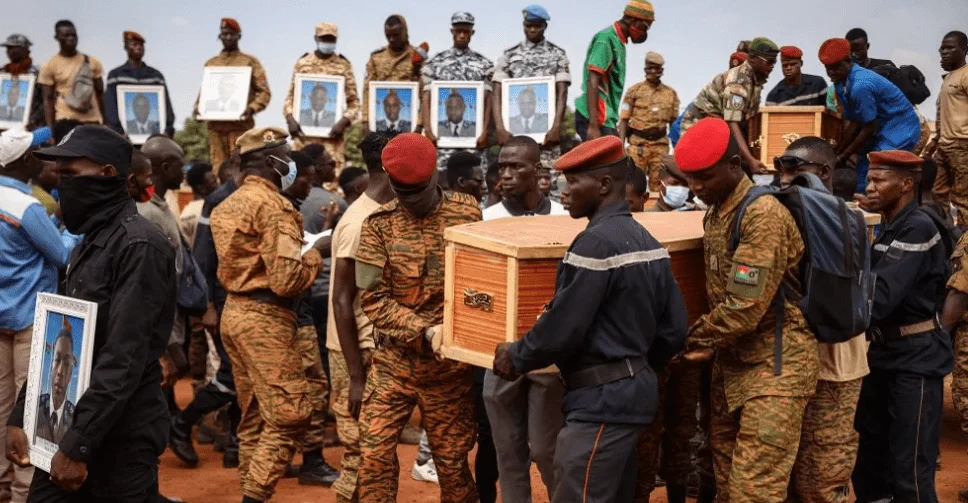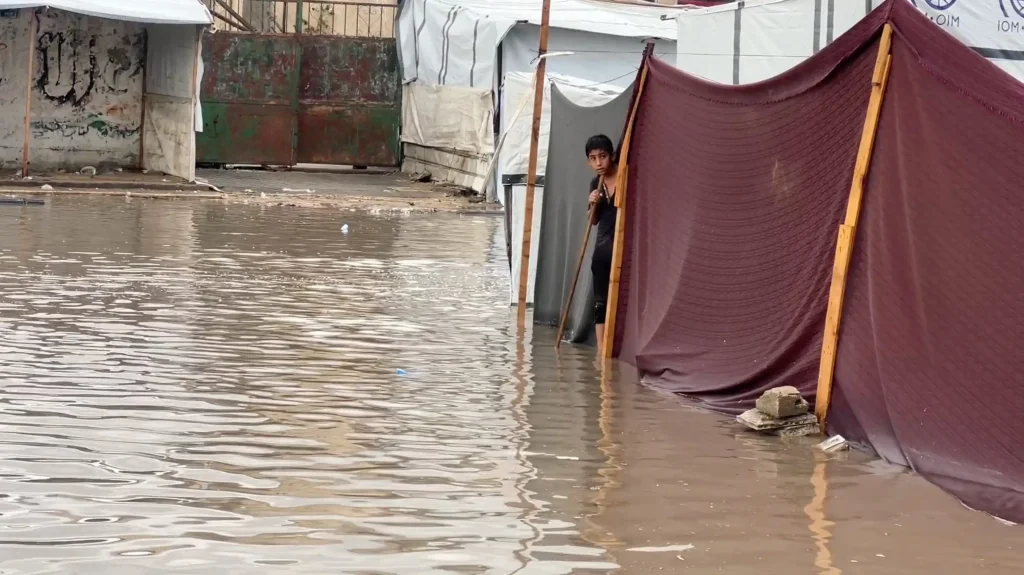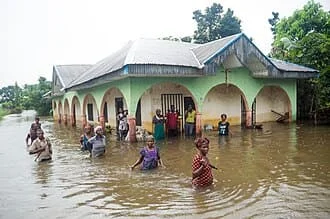A recent attack by suspected jihadists in eastern Burkina Faso left 33 soldiers dead on Thursday, adding to the worsening violence that has plagued the country since 2015.
According to a statement from the army, the military unit in Ougarou, located in the eastern region, faced a large and complex attack early in the morning. “Thirty-three of our soldiers, unfortunately, lost their lives while fighting, and twelve others were injured,” the statement said.
Despite the intense fighting, the soldiers showed “great courage” in the face of an overwhelming number of attackers.
The army added that they managed to kill at least 40 terrorists before reinforcements arrived. The arrival of these reinforcements allowed the evacuation of the wounded, who are now receiving medical treatment.
Security sources reported that the attackers were “heavily armed” and that “some soldiers are still missing.”
The Chief of General Staff praised the fallen soldiers, calling their sacrifice in defense of their country “supreme.” He also encouraged other units to keep up the fight and strengthen their efforts.
This attack follows the brutal killing of at least 60 civilians in the northern village of Karma on April 20 by men dressed in army uniforms.
The government condemned these “vile and barbaric acts” and announced that an investigation was underway to find and arrest those responsible.
Survivors and residents from Karma reported that the death toll could be “more than a hundred.” The victims were buried on Thursday evening, with local authorities assisting the community in laying their loved ones to rest.
Earlier in April, at least 24 people, including 20 civilian volunteers supporting the army, were killed in separate attacks by suspected jihadists in east-central Burkina Faso. Additionally, on April 15, six soldiers and 34 civilian helpers were killed in an attack in the north.
Since 2015, Burkina Faso has been caught in a wave of violence that began in neighboring Mali and Niger, eventually spreading across borders. The conflict has resulted in over 10,000 deaths, both military and civilian, and displaced nearly two million people, according to NGOs.
Captain Ibrahim Traoré, the country’s transitional president who took power after a coup in September 2022, recently signed a decree calling for the “general mobilization” of people aged 18 and over to help fight against the jihadist groups.
This decree, which lasts for one year, is part of efforts to counter the ongoing violence tearing the nation apart.
The violence in Burkina Faso is part of a broader regional crisis that has deeply affected the Sahel, an area that includes Mali, Niger, and parts of neighboring countries.
Jihadist groups, some linked to al-Qaeda and ISIS, have been carrying out attacks in the region for years, targeting both military forces and civilians.
These groups often exploit local grievances, such as poverty, lack of government presence, and ethnic tensions, to recruit fighters and gain influence.
The Burkinabé government has been struggling to contain the violence. Despite efforts to strengthen the military, the army continues to face challenges in fighting these well-armed and organized groups. In response, the government has started relying on civilian volunteers to support the military.
These volunteers, known as the Volunteers for the Defense of the Homeland (VDP), receive basic training and are deployed alongside regular soldiers.
However, they are often poorly equipped and face high risks in combat situations.
The ongoing conflict has also created a severe humanitarian crisis. Hundreds of thousands of people have been forced to flee their homes, seeking safety in other parts of the country or in neighboring nations.
Many live in overcrowded camps, where they struggle to access basic needs like food, water, and healthcare.
The violence has also disrupted farming and other economic activities, further worsening the situation for civilians.
International organizations and Burkina Faso’s allies have called for stronger regional cooperation to address the root causes of the crisis.
The United Nations, the African Union, and the Economic Community of West African States (ECOWAS) have been involved in efforts to support the country’s fight against terrorism. However, despite some assistance, the situation remains dire.
As Burkina Faso tries to navigate its political transition following two military coups in 2022, the government faces the urgent task of restoring security and addressing the humanitarian needs of its people.
President Traoré’s call for the general mobilization of the youth reflects the seriousness of the situation. It signals that the government is prepared to involve more of the population in the fight against jihadist groups.
However, this move also highlights the scale of the challenges ahead, as the country seeks to recover from years of instability and violence.
The fight against jihadist insurgencies in Burkina Faso and the wider Sahel region is far from over. For now, the country remains in a state of emergency, with its people hoping for peace and stability to return.
The international community will need to continue supporting Burkina Faso, as well as its neighbors, in addressing the deep-rooted issues that fuel this violent conflict. Only through collective efforts can there be a path towards lasting peace in the region.























